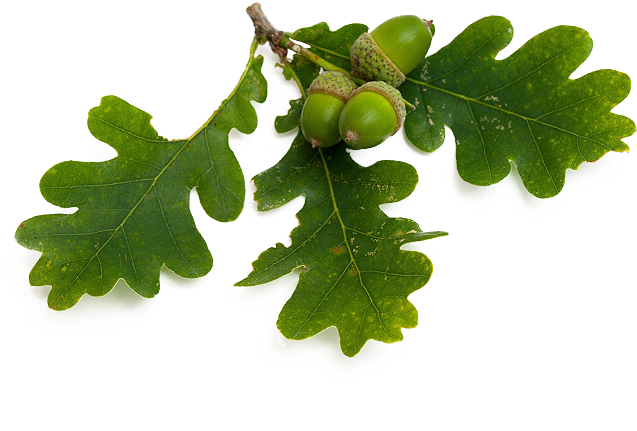PRELIMINARY PROGRAMME
Preliminary programme download
Monday June 20th
- 19:00 – 21:00 Welcome drink
Tuesday June 21st
- 9:00 – 10:00 Registration
- 10:00 – 10:30 Welcoming speeches
Session 1: The calamity – has it already passed?
- 10:30 – 10:50 Bark Beetle Outbreaks in Slovakia. Vakula, J., Kunca, A., Galko, J., Gubka, A., Zúbrik, M., Nikolov, C.
- 10:50 – 11:10 It ain’t over… A new bark beetle outbreak in Austria 2021 Hoch, G., Steyrer G.
- 11:10 – 11:30 Situation in spruce bark beetle calamity in Czechia in 2021-2022 Knížek, M., Lubojacký, J., Liška J.
- 11:30 – 11:50 Current situation of the spruce bark beetle Ips typographus (L.) outbreak in Poland with special regard to montane stand in the Carpathians and Sudety Grodzki, W.
11:50 – 13:30 Lunch
- 13:30 – 13:50 Bark beetle outbreak in Bavaria Lemme, H.
- 13:50 – 14:10 The current state of spruce bark beetle outbreaks in forests managed by the Romanian forest state administration Duduman, M.-L., Olenici N., Nețoiu C.
- 14:10 – 14:30 Spruce bark beetles in Finland during the last 12 years – the outbreaks are yet to come Ylioja, T., Melin, M., Linnakoski, R., Koivula. M.
- 14:30 – 14:50 Future transition to bark beetle outbreaks in Norway? – identifying climatic- and landscape risk factors Gohli, J., Økland, B., Krokene, P.
Session 2: Ecology of post-disturbance areas – can we document negative effect of bark beetle outbreak on C sequestration, hydrology, soil erosion, biodiversity?
- 14:50 – 15:10 Ecological effects of bark beetle outbreaks in Switzerland Brockehoff, E.
- 15:10 – 15:30 Transformation of geochemical and hydrological dynamics in the forested catchment after the bark beetle infestation Su, Y., Langhammer, J., Jarsjö, J., Shao, W.
15:30 – 16:00 Coffee break
- 16:00 – 16:20 Interception in young birch stands with different treatment Souček, J.
- 16:20 – 16:40 Picea abies in Austria: Inclusion of climate-relevant damage factors from bark beetle calamities for the long-term increase of stress resistance in trees Irauschek, F., Trujillo-Moya, C., George J. P., van Loo, M.
- 16:40 – 17:00 Removal of logging residues on the clear-cut areas: a way to economic profit or to soil degradation? Šrámek, V., Fadrhonsová, V., Neudertová Hellebrandová, K., Novotný, R.
Posters for Sessions 1 and 2
- 17:00 – 17:15 Flesh poster presentation
- 17:15 – 18:00 Poster session
Wednesday June 22nd
Session 3: Reproductive sources – are they sufficient in amount and species structure? Should we use non-native/introduced species?
- 9:00 – 9:20 Climate change, biodiversity, raw materials – Challenges for the procurement of forest reproductive material in Germany Wolf, H.
- 9:20 – 9:40 Establishment of research areas with introduced potentially drought-resistant tree species Kotrla, P., Cafourek, J., Leugner, J., Novotný, P., Fulín, M., Bažant, V.
- 9:40 – 10:00 Preservation, propagation and practical use of valuable Norway spruce ecotypes Frýdl, J., Novotný, P., Dostál, J., Buriánek, V., Fulín, M., Máchová, P., Cvrčková, H., Čáp, J.
Session 4: Silviculture – what kind of forest we want to have? How to start and continue on clear-cut area?
- 10:00 – 10:20 Modelling tree species suitability for Styria, Austria Kessler, M., Lexer, M., J., Englisch, M., Vacik, H.
- 10:20 – 10:40 Measures in post-calamity young stands Dušek, D., Novák, J., Leugner, J.
10:40 – 11:10 Coffee break
- 11:10 – 11:30 Forest site protection and reforestation of calamity areas by means of pioneer vegetation -from the Alps to the Franconian Forest Laniewski, R., Meinhold, A., Göttlein, A.
- 11:30 – 11:50 Ways of silvicultural treatment on large-scale areas after wind calamity in northern Poland Łukaszewicz, J., Gil, W., Zachara, T.
- 11:50 – 12:10 Selection principles in pioneer stands – from clearing to Dauerwald Martiník, A.
- 12:10 – 12:30 Wild ungulates as a limiting factor of forest regeneration in post-calamity stands? Cukor, J., Hambálková, L., Skoták, V., Ševčík, R.
12:30 – 14:00 Lunch
Session 5: Economy and Forest Policy – what are needs of forest owners and wishes of the public? Are the calamity consequences reflected on European level?
- 14:00 – 14:20 Consequences of the disturbance of spruce and pine forests on forestry and the cultural landscape in Saxony Eisenhauer, D.-R., Otto, L-F., Sonnemann, S., Matschulla, F., Gemballa, R., Martens, S., Wolf H.
- 14:20 – 14:40 Macroeconomic position of forestry and wood processing industry during the bark beetle disaster Šafařík, D., Hlaváčková, P., Meňházová, J.
- 14:40 – 15:00 Spruce, spruce and more spruce – silvicultural decisions, ungulates, and the spruce bark beetle in Finland. Have we learned anything from the European calamities? Melin, M., Ylioja, T., Koivula, M., Linnakoski, R.
- 15:00 – 15:20 Planting subsidies assist spruce forest owners to switch to uneven-aged mixed management and climate change mitigation Roessiger, J., Kulla, L., Murgaš, V., Sedliak, M., Kovalčík, M., Cienciala, E., Šebeň, V.
- 15:20 – 15:40 Recapitulation of state services provided to small forest owners in the Czech Republic and Austria Meňházová, J.
Posters for Sessions 3, 4 and 5
- 15:40 – 16:00 Flesh poster presentation
- 16:00 – 16:30 Poster session
16:00 – 16:30 Coffee break
- 16:30 – 17:00 General discussion, closing remarks
- 18:30 – ?? Social dinner
Thursday June 23rd
- 8:30 – 15:00 Excursion
Deadlines:
- Abstract submission: April 15th 2022
- Abstract acceptance by Scientific Committee: April 20th 2022
- Registration: May 31st 2022
Fees
- Workshop attendance: 150 €
- Welcome drink: free
- Social dinner: 60 €
- Excursion: 50 €
